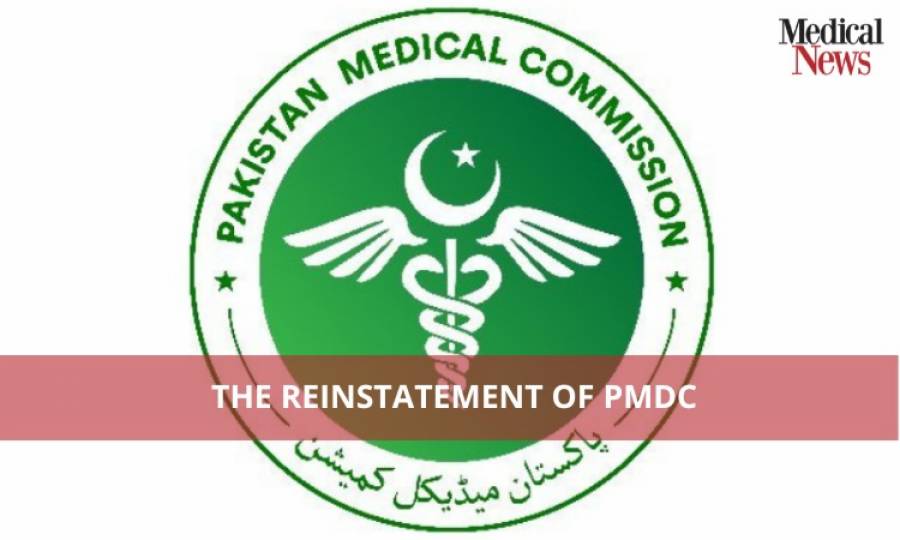The Reinstatement of PMDC

However, under certain circumstances
The National Assembly passed the PMDC bill on the 7th of June, 2022. According to this bill, it is confirmed that the NLE and MDCATs will continue to take place.
The NLE, now rephrased to the NRE (National Registration Examination), shall now take place for foreign dentists aspiring to practice in Pakistan. Pakistani medical and dental graduates are to be exempted from the examination.
The MDCAT (Medical and Dental College Admission Test) will, however, be applicable to all students that intend to apply to medical and dental colleges. This exam will allow students to apply to universities on a pass-fail basis.
The scores will be announced once the exams have taken place, and students will apply to universities subsequently on the basis of merit.
While this is a welcome change for the medical and dental students of Pakistan, the passing of this bill seems to be somewhat of a bittersweet ordeal.
The Objective Behind PMC
According to the members of the commission, the main aim of forming the Pakistan Medical Commission (PMC) was to maintain the quality of medical and dental education in Pakistan.
In order to do this, the commission was of the opinion that the credentials of all medical and dental practitioners and their licenses were to be kept in check at every step.
This was set up to make sure that professionals with a PhD or those that completed their MCPS or FCPS training would be given due importance.
Furthermore, those Pakistani students that opted to complete their postgraduate qualifications from abroad would be given a chance to become lecturers in their home country.
PMC understood the plight of Pakistani medical and dental professionals. Since PMDC previously refused to recognize foreign degrees with a duration of fewer than three years, it caused many students to opt for opportunities abroad instead of practising in Pakistan.
PMC aimed to accept these foreign degrees and allow students to come back and practice their speciality as lecturers in their home country and open doors for the youth to serve Pakistan. This would, in turn, improve the quality of the faculty of medical universities and, therefore, better our education system.
It is uncertain at this point whether these changes will remain in PMDC. To clarify whether the objectives would be passed on to the new autonomous body, the President of PMC, Dr Arshad Taqi, was contacted. However, he was unavailable to comment.
PMDC Returns
When asked to comment, Dr Nasir Khan, a former member of the Pakistan Medical and Dental Council (PMDC), had the following to say:
‘’This is definitely a change, but in some ways, it is more of a continuation with minor differences.’’
According to Dr Nasir, the members of PMDC will now be a governing body, comprising of members that will be nominated instead of being elected.
The previously elected members of PMC consisted of those that represented government and private institutions of all provinces. A nomination will allow for an inaccurate representation of all sectors.
Furthermore, there seems to be little to no representation of dental or medical practitioners on this board.
Dr Nasir was also of the opinion that the idea of conducting unified MDCAT exams is not ideal due to the disparity in the syllabi of the Federal and Sindh Boards.
A unified exam cannot be taken across the country for students if the syllabus itself is not unified across all provinces.
While it is clear that there are mixed responses to the passing of the PMDC bill, it is yet to be determined whether the upcoming PMDC shall prove beneficial for the government and private institutions, students as well as the medical professionals of Pakistan.
Advertisement
Trending
Popular
Hair loss: Discovery uncovers key stem cells that could reverse ...
-
Broccoli sprout compound may help lower ...
11:31 AM, 25 Feb, 2025 -
Gas Pain vs. Heart Attack: How to tell ...
09:00 PM, 22 Feb, 2025 -
Coconut oil supplement shows promise ...
08:00 PM, 20 Feb, 2025 -
Normal vitamin B12 levels may still ...
05:00 PM, 19 Feb, 2025



